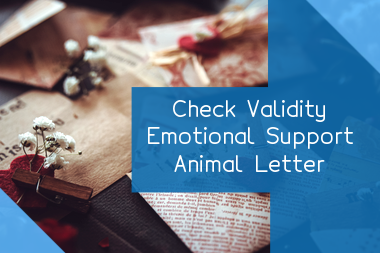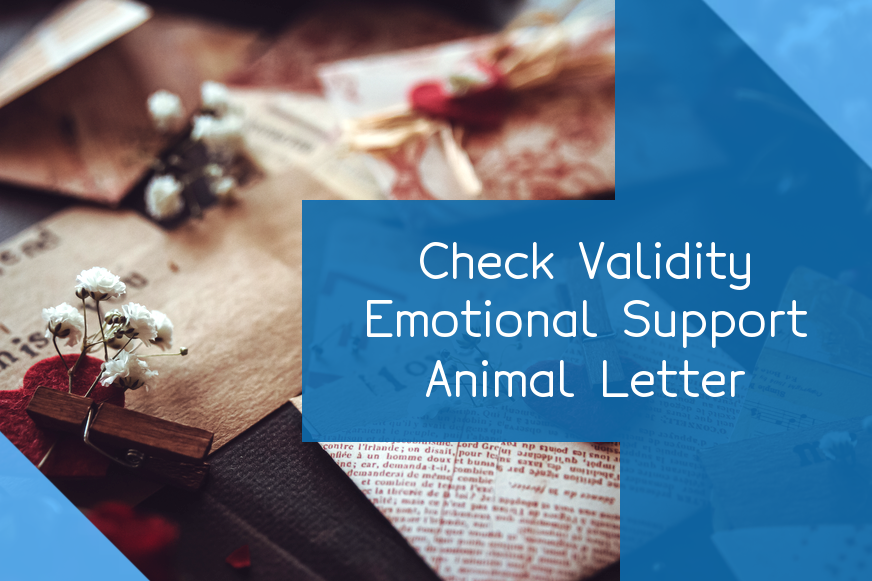- 1. The letter should be written by a licensed mental health professional, such as a therapist, psychologist, or psychiatrist.
- 2. The professionals signature and contact information should be included in the letter.
- 3. The letter should state the specific mental health condition for which the emotional support animal is needed.
- 4. The professional should explain how the emotional support animal will alleviate the symptoms of the persons mental health condition.
- 5. The letter should be dated and written within the past year.
- 6. The letter should be written on the mental health professional's official letterhead.
- 7. The letter should be personalized and include the name of the individual who will be using the emotional support animal.
If the letter includes all of these components, it is likely to be genuine and accepted by landlords or airlines, as required by law. It is important to note that emotional support animals are not the same as service animals and do not have the same level of public access rights.
What is an emotional support animal?
An emotional support animal (ESA) is a pet that a licensed mental health professional has prescribed as part of the treatment for a patient's mental or emotional disability. The main purpose of an ESA is to provide comfort, companionship, and support to their owner. ESAs can be of any breed, size, or species and are allowed to fly with their owner in the cabin of an airplane and live with them in housing that may normally prohibit pets. ESAs are not trained to perform specific tasks like service animals, but their presence can provide therapeutic benefits to their owner. The owner must have an official ESA letter from a mental health professional to have their animal recognized as an ESA.
The challenge of identifying fake ESA letters
One of the main challenges in identifying fake ESA (emotional support animal) letters is that there is no official registry or certification process for emotional support animals. This makes it difficult to verify the authenticity of the letters, as anyone can create their own letter and claim that it is from a licensed mental health professional.
Many fake ESA letters include language that is too vague or general, or they may simply state that the person needs an emotional support animal without providing any specific details about their condition or treatment. Additionally, some fake letters may be created using templates or online generators, which can make them easier to spot if they contain similar language or formatting.
Another challenge is that some people may try to use fake letters to bring their pets into places where they are not typically allowed, such as apartments or airplanes. This can make it difficult for legitimate ESA owners to access the accommodations they need, as some property owners or airlines may become suspicious of all ESA letters and require additional documentation or proof of need.
Overall, the challenge of identifying fake ESA letters highlights the need for more standardized regulations and guidelines around emotional support animals, as well as better education and awareness to help prevent fraud and abuse of the system.
How to tell if an ESA letter is legitimate
- 1. Licensed Healthcare Professional: A legitimate ESA letter must be provided by a licensed healthcare professional, such as a therapist, psychologist, or psychiatrist. This documentation will ensure that your pet is legitimate, and their medical needs are addressed.
- 2. Letterhead And Contact Information: The letter should have the healthcare provider's letterhead printed with contact information such as phone number and address.
- 3. Legal Language: The letter should be written with professional medical language and include the specific animal that will act as your ESA as well as the provider's identification number.
- 4. Emotional Support Animal Recommendation: The ESA letter should state clearly that the animal is recommended for emotional support because of an ongoing mental health condition.
- 5. Authentic Signature: Finally, the authentic ESA letter should have a handwritten or electronic signature from the healthcare professional.
It is important to remember that there are many fraudulent companies and websites that offer fake ESA letters, so be sure to do your research before choosing a provider.
Can landlords deny tenants who have a real ESA letter?
No, landlords cannot legally deny tenants who have a valid emotional support animal (ESA) letter. Under the Fair Housing Act (FHA), landlords are required to make reasonable accommodations for tenants with disabilities, which includes allowing them to keep their emotional support animals in their rental unit regardless of a "no pets" policy. However, landlords can still deny tenants if they pose a direct threat to the health or safety of others or if accommodating their emotional support animal would result in undue financial burden or fundamentally alter the nature of the housing provider's operation.
Just one more thing: if you liked the article, please like us on social media and share this article with friends.



